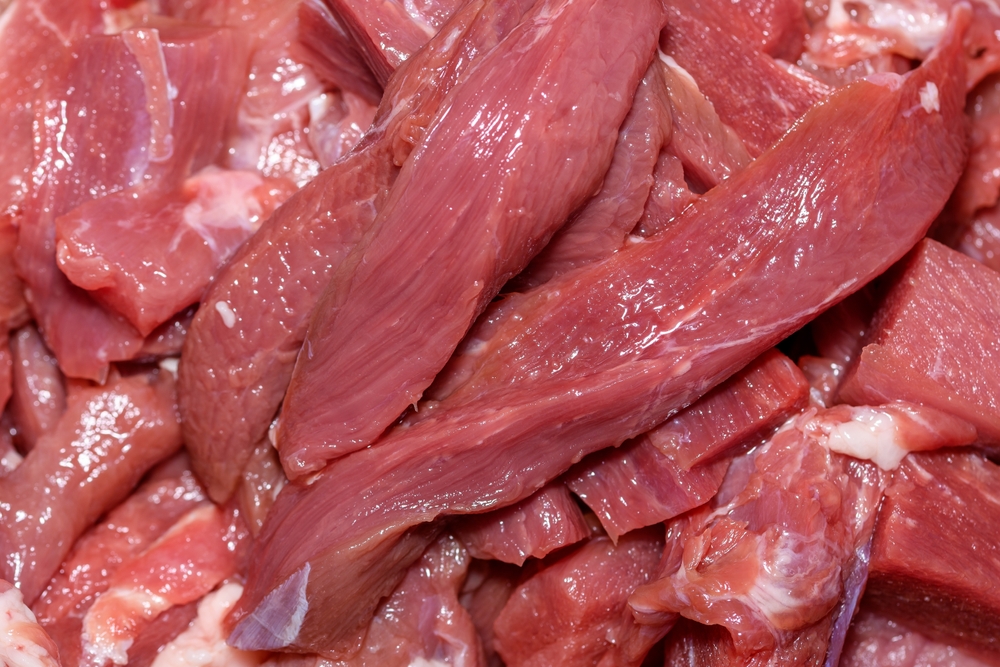Novel Proteins And How They Could Help Fix Your Dog's Allergies.
August 12, 2024 | By David Jackson
An introduction to pet food allergies.
Weekly, we receive several messages from concerned dog owners who are desperately seeking help and guidance with their dog's food allergy. Having a dog with a food intolerance can be a real pain in the bum. And it's no surprise with so many food labels unable to disclosure a full breakdown of ingredients, people can really struggle to manage the problem. Food allergies are one of the most common allergies or hypersensitivities known to affect dogs.
Signs and symptoms of an allergy can really vary from dog to dog. They can range from simple rashes and itchy skin, to over grooming, behavioural changes and digestive upsets such as vomiting or loose stools. And sometimes allergies can be mistaken for other health concerns and therefore go under the radar for a prolonged period of time.
It's worth noting there are other forms of allergies, such as environmental allergies. But usually many of those are seasonal, so you will see symptoms drop off at various times of the year. Whereas the symptoms of a food allergy tend to stick around all year long. And those persistent health problems will help you differentiate between the two. So what causes a food allergies? Well, just like the signs and symptoms, this can also range from various different ingredients found in our dog's food.

However, some of the most common food allergies in the UK are from protein sources (chicken, beef, turkey etc.) And frustratingly your dog can develop a food intolerance years down the line. Many people assume dog's are born with allergies but this isn't the case. Since antibody production is required for an allergy to develop, food allergies usually manifest after prolonged exposure to one brand, type, or form of food.
So in theory, your dog could eat the same food from the age of 1 years old but develop a problem at the age of 5. It would be at that point where you need to reevaluate what you feed your dog and potentially introduce them to a novel protein.
What are Novel Proteins and how can they help with an allergy problem?
So firstly, how can novel proteins come in handy when it comes to dogs with allergies? Well, like mentioned in the introduction, allergies within pooches tend to crop up after your pet has been exposed to certain foods and ingredients over a long period of time. So swapping your dog's food between different brands, but not changing out the key main ingredients (like the proteins used) will have you going round and round in circles. Especially with poultry products being present in a high percentage of dog foods (even if chicken isn't the named meat on the front of your food packet.) To crack the code, you need to introduce a protein source into their diet which is generally new to your dog's system. And that's where novel proteins come into play.

In short, novel proteins are meats which your dog has had little to no expose to and they usually come in the form of more 'exotic' meats- examples would be wild boar, pheasant, rabbit and kangaroo. Novel proteins also tend to be less processed, much leaner and overall they can offer a higher nutritional value, which is never a bad thing in dog food. And whilst foods with novel proteins aren't always readily available from your current dog food manufacturer, it's a growing market with plenty options available to purchase, both in shops and online.
Which pet foods contain novel proteins?
The good news is novel protein dog foods come in all shapes and sizes. So it doesn't matter if you feed dry, wet or raw food, there's something out there for everyone. And whilst most pet shops will stock foods containing more exotic meats, you may struggle more if shopping in the supermarket. The best place to find foods with these new and exciting ingredients is online.

The list is endless and you're likely to find a wider range online. One thing to bear in mind is the cost of some of novel protein based foods available may be slightly higher than what you are currently feeding. And you'll most likely notice a big jump if you feed your dog on a low cost food. This isn't always the case, but it is a comment I see from time to time. However, if you total up the amount of money you spend on vet trips, creams and medication you may splurge on to try keep allergy symptoms at bay, it may be worth spending those extra few pounds a month on a food which What I will say, is before purchasing a food, always read the breakdown of ingredients.
If there are any unlisted meat products, such and meat and animal derivatives, meat meal etc, this isn't the food for you. A lot of people get caught out due to lack of clarity on many dog food labels and assume the only protein present is the one listed on the front of the bag. This is rarely the case, especially with budget foods. You are looking for a food using just novel protein ingredients. Ideally you want to find a single protein food using a novel meat- the less amount of different meat ingredients used in a food, the better.
I've switched to a novel protein but it hasn't helped?
Alongside meat, there are other foods which can cause intolerances in dogs, usually they are carbohydrate ingredients (maize, rice, corn etc). But with that being said, any ingredient can cause food allergies. If you have moved your dog away from all commonly used, typical meats and your pooch is still showing signs of a food allergy, it may be that meat isn't the problem. And, unfortunately in this case you'd need to dive into a more detailed plan of action. This is when I'd recommend an elimination diet. We have touched on this in a previous article, so I suggest you look back at our 'One Minute Articles: Planning the Diet for a Dog with Sensitive Skin' and watched the embedded TikTok where I explain just exactly how an elimination diet works and the first steps you need to take. If a novel protein switch was the correct approach for you and your dog, you should see differences within days.
Final thoughts.
For many, introducing novel proteins to their dog's diet can be an uncomplicated, straight forward solution to their dog's food intolerances. It can surprise many pet owners just how quickly they see a difference in their pet just by simply swapping the protein they consume. But, just with any change of food, this should be done responsibly and correctly. Be sure you are happy with the swap you are making and always triple check that ingredients list. Always be sure to slowly introduce any new food over a period of days.
Sudden changes in foods can result in an upset stomach making it hard to understand whether that food wasn't the right choice for your dog, or you simply made too quick of a change. But all that aside, it's important to realise novel proteins aren't always the answer and if you don't notice a change in your dog, it may be back to the drawing board for you. Food allergies can be hard to tackle and whilst you'll be miserable trying to battle with finding a solution, your dog will also be miserable trying to cope with repercussions of their food not agreeing with them. So though it may take some time and patience, it's vital to get to the bottom of any allergy present in your dog, to ensure a happy, healthy pooch.
As always, we value the input of the All About Dog Food community. If you have any tips, experiences, or questions about your own journey with pet food allergies or novel proteins, please leave a comment below or start a discussion in our forum.
|